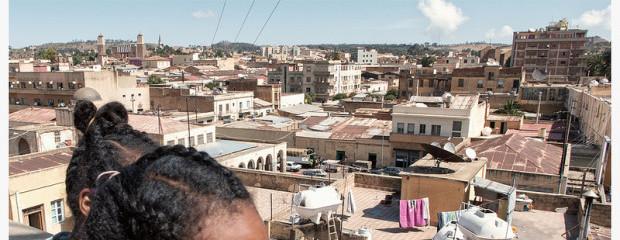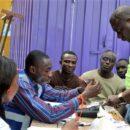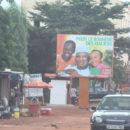Malawi elections: Banda defeated by corruption and hunger – By Frank Jomo


Joyce Banda likened her political career to that of Nelson Mandela, but attempted to annul an election she seemed poised to lose.
“I regret that my predecessor Joyce Banda has declined to hand over power to me. I was looking forward to shaking hands with her and burying the hatchet. This is not time for vengeance or revenge. I have come with an olive branch; please don’t let it fall from my hand.”
These were the words of Malawi’s President-elect Peter Mutharika during an inauguration ceremony in Blantyre on Monday, June 2nd.
Malawi’s former president Joyce Banda was conspicuous by her absence at a function graced by international dignitaries including the Botswana President Ian Seretse Khama. Not that people had expected that Banda would attend, but when it was mentioned by the victor himself that his predecessor was nowhere near the event, it became apparent that electoral defeat has been a bitter pill for Banda to swallow.
After what had were the most protracted and fiercely contested elections in the country’s history, the Malawi Electoral Commission (MEC) last Friday named Peter Mutharika the winner. Mutharika gained 36 percent of the total votes polled. He was followed by Lazarus Chakwera of the Malawi Congress Party with 27.8 percent, while Banda trailed in third place with 20.2 percent.
The poll was, however, marred by massive irregularities which lay its credibility open to question. Voting, which was scheduled to start at 6 am on May 20th and run for 12 hours, extended into a third day at some polling stations in Lilongwe, the capital, and Blantyre, the commercial center. This was blamed on a shortage of voting materials subsequently unleashing violent protests from voters.
When results started coming in from voting centres, it became clear that there were serious problems with how the election was conducted. In its own admission, the MEC reported that results from some centres showed that the number of people who voted by far surpassed the number of registered voters.
The results had Banda trailing in the race to both Mutharika and Chakwera. Taking advantage of the uproar surrounding a clearly mismanaged election, Banda tried to annul the poll so that the man she demonized upon assuming power from his late brother would not be her successor.
That the elections were flawed was no secret, however few agreed with Banda’s decision to cancel them. Banda badly misjudged the domestic political landscape: nobody wanted to side with a bad loser. The decision she took has also tarnished her previously excellent international reputation.
Speaking at the burial ceremony of Nelson Mandela, Banda likened her political career to that of the African legend. She said that Mandela shaped her political journey and impressed on African leaders that they are in office due to the will of people. Months down the line her actions put to question whether she meant what she said.
Yes the elections were flawed. Yes the electoral body in Malawi conceded that the process was marred by irregularities. But Banda’s attempt to annul the elections was not backed by any constitutional provisions.
Edge Kanyongolo, a lecturer in law at the University of Malawi, told this reporter that Banda did not have the power to cancel the elections and the sections of the Constitution that she quoted (and on which she based her actions) did not justify it. The act was simply a clumsy attempt to stave off the succession of her nemesis-cum-successor, Peter Mutharika.
But Joyce Banda’s fall from grace was her own making. She presided over a government that stole and abused public resources with impunity. The plunder of the public purse, dubbed “˜Cashgate’, which saw Malawi lose 13 billion kwacha ($32.5 million) in less than six months, was probably the biggest nail to be hammered home into her political coffin.
In October 2013 Banda dissolved her cabinet to push home the message that she was fighting corruption. Her government arrested senior officials accusing them of being part of the Cashgate scam. But her political career took a fatal hit as, in the minds of many Malawians; she was unable to successfully defend her assertions that she was not complicit in the plunder.
Things came to a head when her government failed to account for $15 million earned from the sale of a presidential jet, an asset she said Malawi could ill afford to maintain.
Banda attempted to push the responsibility for high-level corruption to the former government of Bingu Mutharika, while constructing a holier-than-thou image of herself. It was however only a matter of time before Malawians vented their anger on her administration. The ballot box came at exactly the right time for such a performance.
The other key factor that pushed Banda out of office is one that has been strangely ignored in recent months. This was the famine that affected about two million people in 2013. Banda inherited a government which had managed to ensure food security, but just a year into office Malawi was struck by severe food shortages. Maize, the country’s staple food, vanished from the strategic reserves. There was no maize available at government markets, but the president still had enough to distribute during her political rallies. This did not look good.
Long queues formed at grain markets as stories of people dying of hunger started to emerge. People who two years ago had a surplus had suddenly become beggars and Banda was blamed for using government maize as a campaign tool. The empty bellies walking the streets of Malawi were a sure sign that Banda’s end was near.
After her defeat, Banda is no doubt pondering what went wrong. The answer is simple: corruption and hunger. No president, however holy, could survive these.
Frank Jomo is Malawian journalist. This article was commissioned via the African Journalism Fund.






